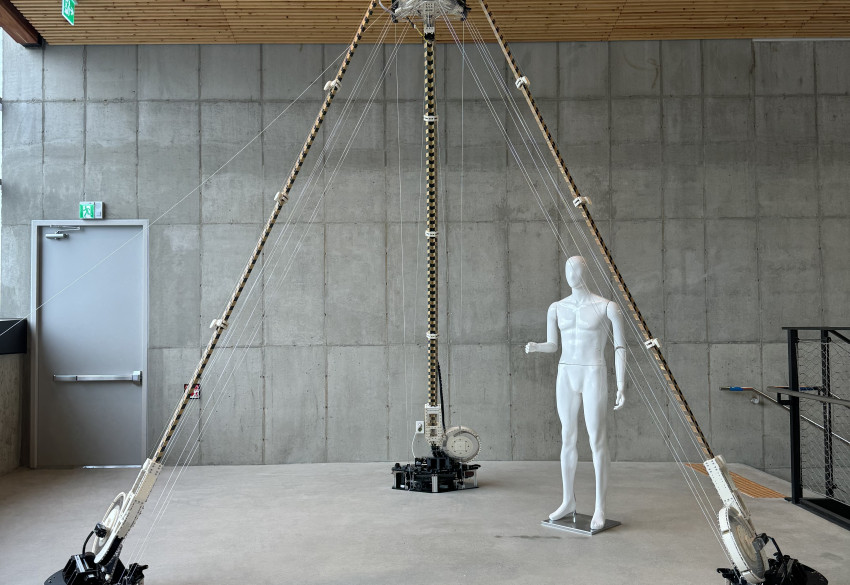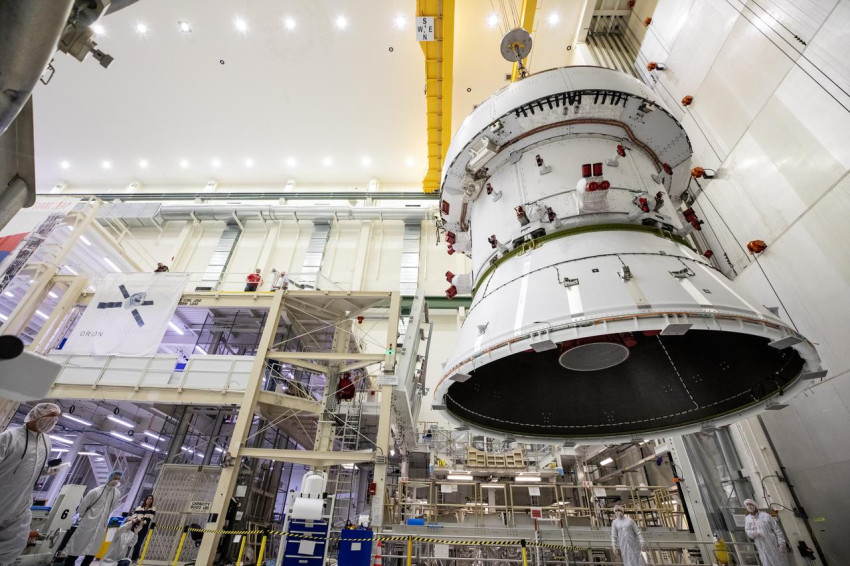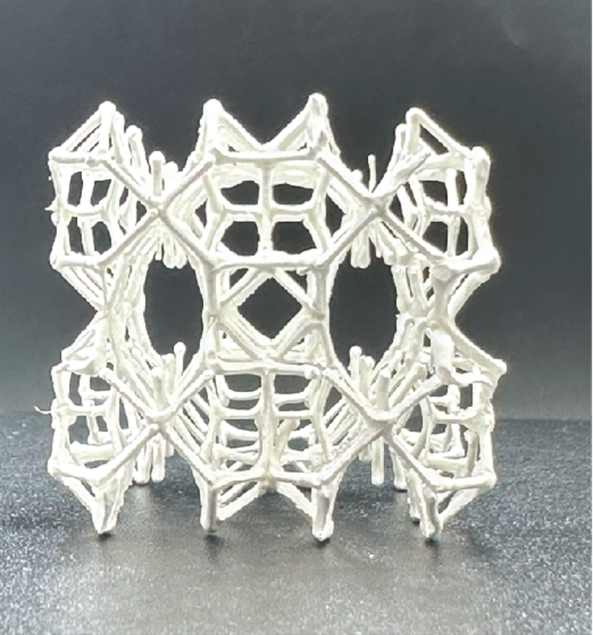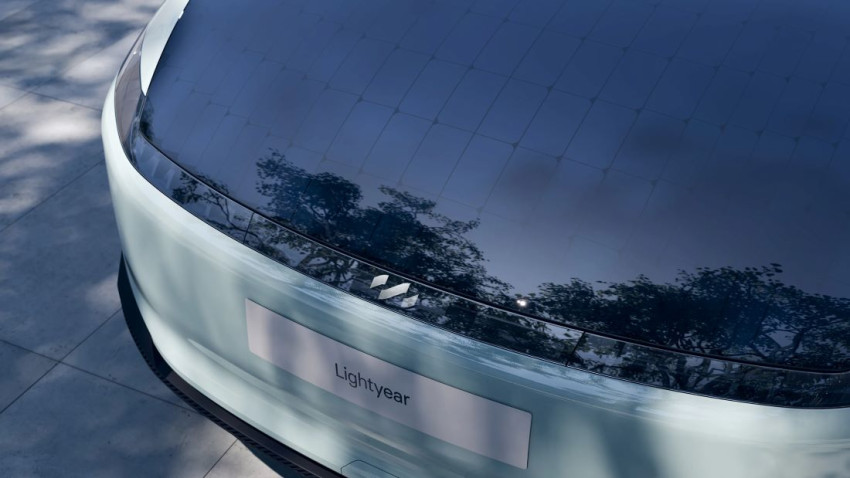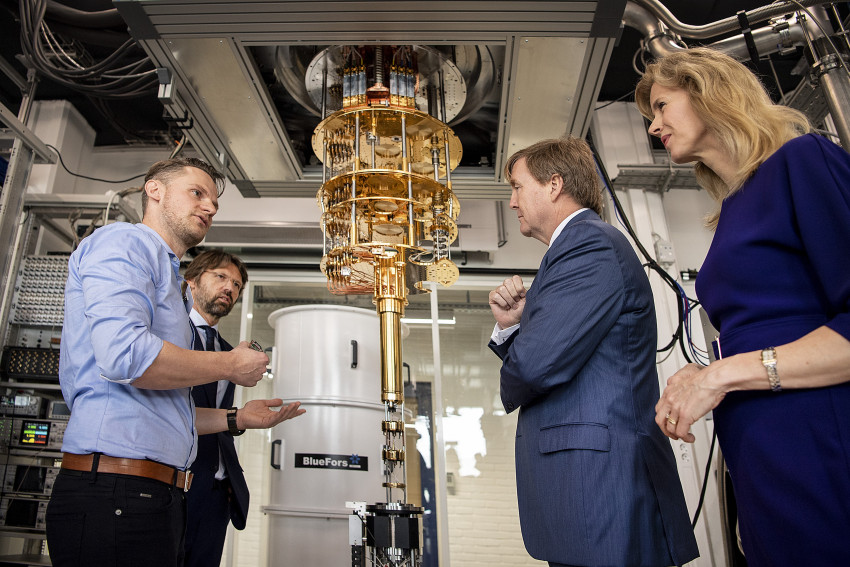
'Delft can become the quantum capital of Europe'
Last week, the Microsoft Quantum Lab was officially opened in the physics faculty at Delft University of Technology. Physicist Leo Kouwenhoven will be working there alongside the software giant to create a new kind of quantum computer.
King Willem-Alexander conducted the formal opening in the university’s auditorium. The laboratory is located next to the QuTech Institute, which is investigating all the opportunities offered by quantum computers on behalf of the university. Kouwenhoven has been working for Microsoft for the past two years, but the arrival of the lab is the icing on the cake for the collaboration between the university and Microsoft. ‘Delft must become the quantum capital of Europe,’ stated Microsoft Director Ernst-Jan Stigter at the opening ceremony.
CLOSED
The new facility has its own clean room, where the quantum chips are made, and several large coolers to test them in. The lab also has a ground floor, which is home to all kinds of diagnostic equipment that allow the interior of a quantum chip to be analysed at atomic level. It looks like no expense has been spared in giving Kouwenhoven the lab of his dreams, although the exact amount spent by Microsoft is unknown as the company does not reveal information about its investments. The lab is closed off from the rest of the university, and only those with a pass can enter. These same rules applied at the research halls at QuTech, where there were also some commercial projects. According to Microsoft staff, the area has to be closed off to protect intellectual property.
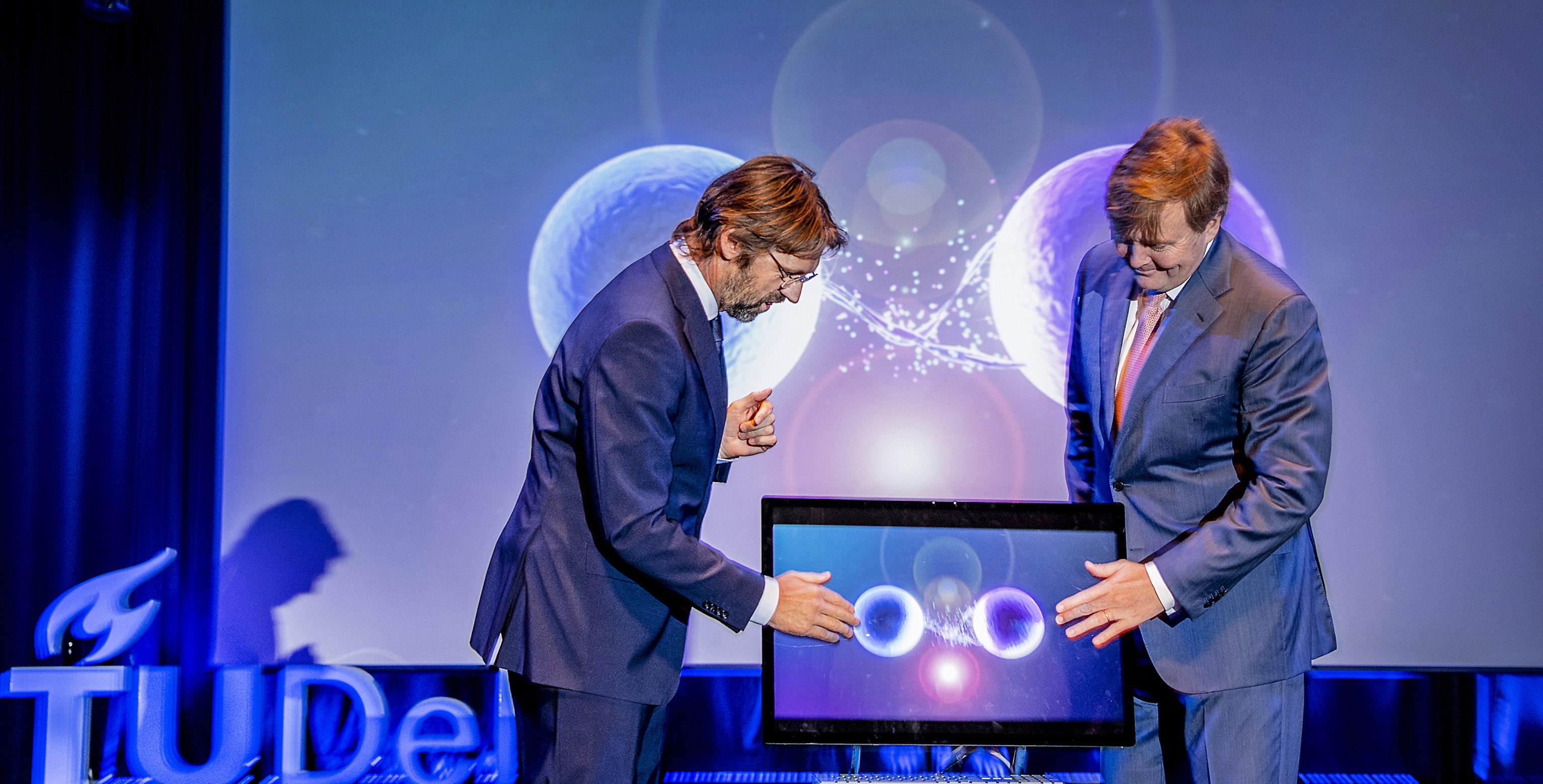
Delft undergraduates and PhD students will work in the quantum lab, where they will be able to participate in some interesting experiments and help Microsoft achieve its goal of a working quantum computer.
UNSTABLE QUANTUM COMPUTERS
Although there are already several quantum chips in existence (Google and IBM, for example, are working on these kinds of chips), until now nobody has been able to build a reliable quantum computer. That’s because the qubit transistors used in quantum computers are very unstable, and lose their information after a short time due to issues such as disruption from the outside or impurities in the material used to make them. The computer that Kouwenhoven and Microsoft want to build will avoid this problem by using the Majorana particles discovered by Kouwenhoven to build something called a topological quantum computer.
Majorana particles are the ends of a series of electron couplings that are not connected, unlike the rest of the chain. These ends can be tied together, and then knots made in the ‘thread’ created. These nodes contain data, and, simply put, this is the basis of Kouwenhoven's computer.
PURE MAJORANA PARTICLES
In theory, the whole system works, but now the challenge is to build a working model. If it succeeds, it will be the most stable quantum machine ever, as the knotted thread retains its information longer than other qubits. However, before it can be built, the researchers at the lab must be able to make extremely pure material, and find out what effect impurities in a rod with Majorana particles have on the quality of a quantum chip. Then the task is to build a computer with a whole network of Majorana particles that is capable of performing calculations.

WHEN WILL THE COMPUTER BE READY?
Those involved in the project don’t know how long it will take, but they are all convinced that they will succeed, which is why Microsoft is investing now. ‘Quantum is moving from theoretical concept to practical application. That is the time for a company like Microsoft to invest,’ says National Technology Officer Hans Bos. The company has a number of other quantum labs worldwide, often set up in collaboration with universities, but Bos thinks that the Netherlands is in a leading position. ‘This lab in Delft covers more aspects of quantum technology than any of our other labs. What makes it special is that it is fundamental and practical, with in-house expertise on both materials and hardware.’
Even Kouwenhoven, by nature a highly fundamental researcher who had been on the hunt for the volatile Majorana particle for a long time, thinks the time is ripe for application. ‘Quantum technology is now in a transition phase of going from exploration to exploitation.’


